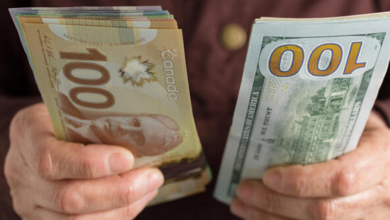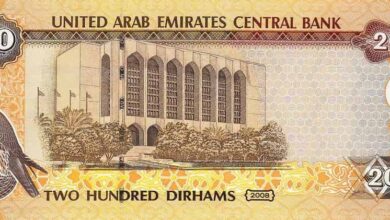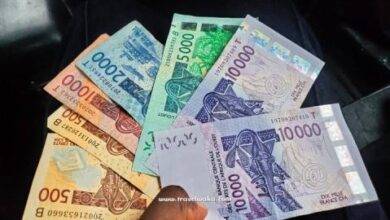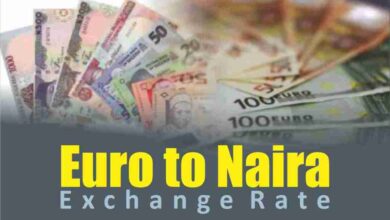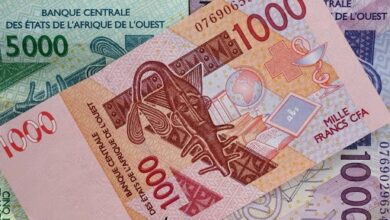South African Rand to Naira Official and Black Market Exchange Rate Today
The South African Rand to Naira black market exchange rate has been on a steady decline in recent months.
This is due to the political and economic instability in South Africa. The rand has lost about 30% of its value against the US dollar since January 2019.
The black market exchange rate is the rate at which currency is traded on the black market.
It is usually higher than the official exchange rate. The official exchange rate is the rate at which the government of a country allows its currency to be traded on the international market.
The South African Rand Currency
The South African Rand is the currency of South Africa. It is issued by the South African Reserve Bank and is legal tender in South Africa.
The Rand is subdivided into 100 cents. The Rand is often informally referred to as the “Rand” or the “Rand”.
The Rand is one of the most traded currencies in the world and is also one of the most volatile.
The Rand has a relatively short history, having only been introduced in 1961. However, in its short life, the Rand has already undergone several large swings in value.
The Rand is an important currency for South Africa and for the many businesses and investors that trade with South Africa.
The Rand’s volatility makes it an attractive currency for traders and investors looking to make quick profits.
South African Rand to Naira Black Market Exchange Rate Today
Rand to Naira Black Market Rate
Buying @ 1 Rand= 32.00 Naira
Selling 1 Rand = 35.00 Naira
Naira to Rand Black Market Rate
Buying 1 Naira = 0.031 Rand
Selling @ 1 Naira = 0.029 Rand
Rand to Naira Official CBN Rate
Buying @ 1 Rand = 25.04 Naira
Selling @ 1 Rand= 25.06 Naira
Naira to Rand Official CBN Rate
Buying 1 Naira = 0.04 Rand
Selling @1 Naira = 0.04 Rand
Factors affecting the exchange rate of the South African Rand to Naira
The exchange rate between the South African Rand (ZAR) and the Nigerian Naira (NGN) is constantly changing. The black market is where individuals buy and sell currencies outside of the official, government-regulated exchange rate.
The current state of the world economy is one of the main things that affects the exchange rate between the South African Rand and the Nigerian Naira.
When global economic conditions are stable and performing well, the ZAR is likely to be seen as a safe investment and could appreciate against the NGN.
In contrast, if there is an economic downturn or instability, then this could weaken the ZAR relative to other currencies, including the NGN.
In addition to economic conditions, political developments in both South Africa and Nigeria can also impact the exchange rate.
Changes in government policies, such as the central bank’s interest rates, can affect the value of both currencies relative to each other.
Exchange rates can also be affected by how confident investors are in a country’s government and how stable its government is.
Also, supply and demand play an important role in determining the exchange rate between the ZAR and NGN. If demand for the ZAR is high, then it will appreciate against the NGN.
Conversely, if demand for the NGN is high relative to that for the ZAR, then it could weaken against the ZAR.
By knowing about these factors, traders can better figure out how much risk they are taking when trading between the South African Rand and the Nigerian Naira and when to enter and exit trades.
Countries That Use South African Rand
The South African Rand is the currency of South Africa. It is also the currency of the Common Monetary Area between South Africa, Lesotho, Namibia, and Swaziland.
The rand has been used since 1961 and is currently the twenty-second most traded currency in the world.
The rand is subdivided into 100 cents (c). There are coins of 1c, 2c, 5c, 10c, 20c, and 50c, and notes of R1, R2, R5, R10, R20, R50, R100, and R200.
The following countries use the South African Rand as their official currency:
– South Africa
– Lesotho
– Namibia
– Swaziland
How to get the best South African Rand to Naira exchange rate
The first step is to research the current exchange rates in your area. The black market rate can vary significantly from one location to another, so it’s important to do your homework and find out what rate you can expect.
It’s also a good idea to compare rates between multiple providers to get the best deal.
Next, it’s important to understand the risks associated with the black market. As this type of exchange isn’t regulated, it’s important to use a reputable provider and check for any hidden fees or charges.
You should also make sure that the exchanger you choose is registered and legit.
Finally, it’s important to stay up-to-date with the latest news on exchange rates.
Keeping abreast of currency fluctuations can help you make informed decisions about when to buy and sell South African Rand for Naira.
South African Rand to Naira Black Market Exchange Rate FAQS
Which currency is stronger than rand in Africa?
As a result of the country’s transition to a market economy, the Seychellois Rupee (SR) is currently the most valuable currency in East Africa and is regarded as one of the most valuable currencies in all of Africa.
What is the currency of South Africa today?
The South African rand (ZAR) is the country’s currency, and it is issued by the South African Reserve Bank. The South African rand is denoted by the letter R. It is divided into hundred cents.
How much is 100 rand to a Naira?
R100.00 is equivalent to 2,545.37 (NGN) or two thousand five hundred forty-five naira and 37 kobo in today’s currency market.
How much is 1000r to naira?
R1,000.00 is currently worth 25,329.58 (NGN), or twenty-five thousand three hundred twenty-nine naira and 58 kobo.
Conclusion
As the US Dollar continues to be a major currency in global trading, it affects the value of both the South African Rand and Nigerian Naira.
As the US Dollar strengthens, both currencies become weaker, driving down their exchange rates.
While the exchange rate between the South African Rand and Nigerian Naira can fluctuate greatly, it is important to keep track of the current market rates.
This can help you make informed decisions when making foreign currency transactions.
